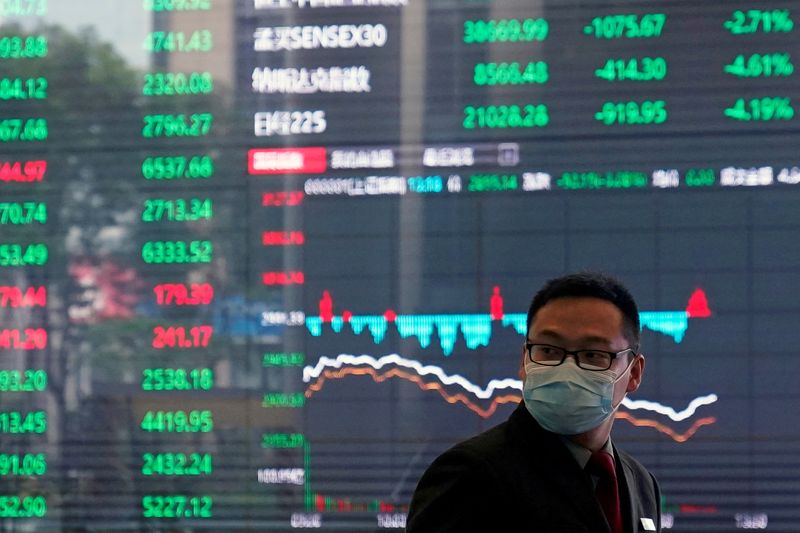SHANGHAI (Reuters) – China will revamp its benchmark equity index by introducing more high-tech strength and removing loss-making companies, as it turns to its capital markets to bolster its economy against the impact of the coronavirus outbreak.
While the crisis has aggravated tensions between Beijing and Washington, China has increased its focus on capital markets to foster growth as it seeks technological self-sufficiency.
China will include depository receipts issued by red-chip companies listed on the Shanghai Stock Exchange and stocks in the technology and innovation STAR Market in the Shanghai composite index <.SSEC>, the Shanghai Stock Exchange (SSE) said in a statement on Friday.
The so-called red-chip stocks are listed on the Hong Kong Stock Exchange, and their ownership can be linked to a mainland government entity, according to FTSE Russell’s definition.
Stocks with a risk warning alert, usually issued to loss-making companies, will be removed from the Shanghai index, the statement said.
The SSE also said it would publish on July 23 an index tracking the STAR Board, launched last July.
The Shanghai Composite has not been revamped since its introduction in July 1991, leading to an excess weighting of traditional industries, including banks and energy, analysts and fund managers say.
The planned changes follow other reforms.
A week ago, China finalised rules for companies seeking to list on Shenzhen’s ChiNext board that streamline the process and allow the market to fully determine IPO pricing.
China’s top securities regulator said on Thursday the country would continue to “comprehensively deepen” capital market reform and that the priority was to restore market confidence.
In a sign of market participants’ approval, the ChiNext <.CNT> hit a more than four-year high on Friday.
Yu Xiuwen, an analyst with Huachuang Securities, said Sino-U.S. tensions added impetus for change and Beijing was attaching more importance to its capital markets as a financing channel as it seeks to support its home-grown tech sector.
(This story corrects the definition of red-chip stocks)
(Reporting by Luoyan Liu and Andrew Galbraith; editing by Barbara Lewis)


















